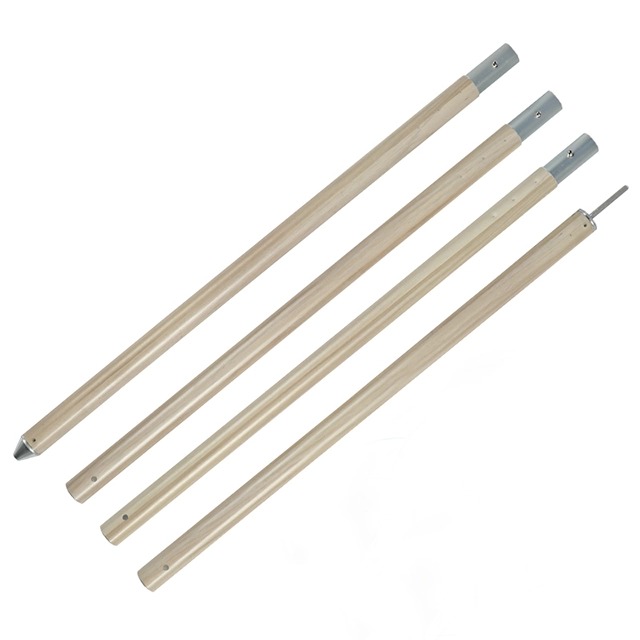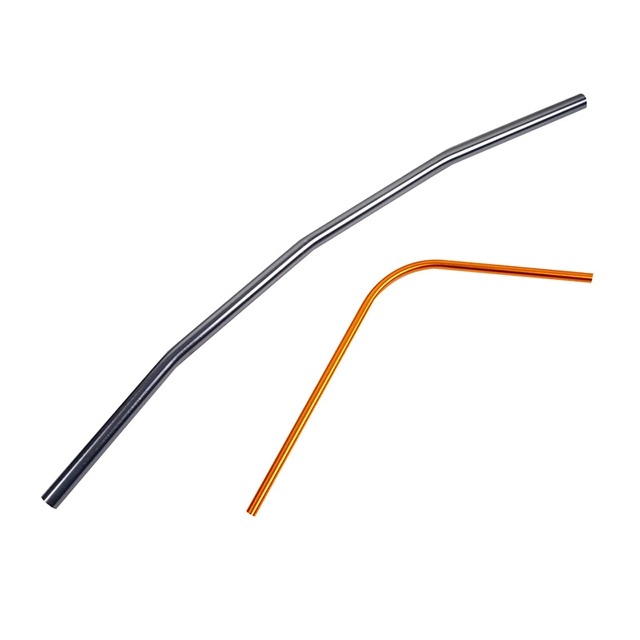Introduction
In the ever-evolving world of outdoor gear, performance and adaptability have become essential for brand competitiveness. As hiking, camping, and expedition activities increase worldwide, equipment manufacturers face pressure to produce lighter, stronger, and more user-friendly products. One standout innovation leading this transformation is the Customizable Aluminum Tent Pole. These poles are fast becoming a preferred choice for outdoor brands, replacing traditional fiberglass or fixed metal poles. But why are so many companies making the switch?
This article explores the reasons behind this industry-wide shift, the advantages aluminum tent poles bring, and how customization is adding a new layer of value to both consumers and manufacturers. Whether you’re a gear enthusiast, product developer, or brand strategist, understanding this change is crucial to staying ahead in the outdoor market.
Why Aluminum Tent Poles Are Outpacing Traditional Materials
Lightweight Performance Without Compromising Strength
Aluminum alloys, especially 6061 and 7075 types, offer an exceptional balance between strength and weight. This makes them ideal for tent poles used in unpredictable outdoor conditions. Unlike fiberglass, which can splinter or crack under stress, aluminum poles are engineered for resilience. They handle high winds, uneven terrains, and repeated assembly without significant wear and tear.
For consumers, the lighter weight translates directly into less pack load, especially crucial for long-distance hikers or high-altitude expeditions. For manufacturers, aluminum poles provide better design flexibility, allowing for segmented, collapsible, or telescopic features without structural sacrifice.
Weather Resistance and Durability
One of the primary reasons brands favor aluminum is its corrosion resistance. High-quality aluminum poles come with anodized coatings that protect against rust and oxidation. This makes them especially suitable for all-season tents and shelters where exposure to rain, snow, and humidity is common.
Over time, aluminum poles require less maintenance and offer greater longevity than alternatives. Their performance remains consistent across multiple trips and extreme weather events, reducing customer complaints and product returns — a win for both customer satisfaction and brand reputation.
![Aluminum Tent Pole Aluminum Tent Pole]()
The Power of Customization in Outdoor Equipment
Tailored Lengths, Diameters, and Locking Systems
The term “customizable” has evolved beyond color options. In today’s market, outdoor brands demand technical specifications tailored to their unique product line. Aluminum tent poles are now available in various lengths, diameters, wall thicknesses, and locking mechanisms such as twist-lock or flip-lock systems. This means a brand can engineer poles to match the exact stress tolerances and spatial limitations of their tent design.
For instance, a lightweight backpacking tent may require ultra-slim telescopic poles, while a rugged basecamp tent needs thicker, reinforced segments. With customizable aluminum tent poles, such variations are no longer manufacturing hurdles but competitive advantages.
Brand Identity Through Visual Customization
Beyond functionality, customization allows brands to differentiate themselves visually. Aluminum poles can be anodized in multiple colors — from stealth black to vibrant reds and greens — without compromising performance. Laser-engraved logos or serial numbers add an extra layer of branding and traceability.
This appeals especially to boutique and premium outdoor brands that emphasize aesthetics as part of their customer value proposition. A tent that not only performs well but also looks sleek and recognizable becomes easier to market and price competitively.
Telescopic Design — A Game-Changer for Portability and Versatility
Compact Storage and Adjustable Use
One of the most praised features of customizable aluminum tent poles is their telescopic design. By allowing the poles to collapse into shorter sections, packing becomes significantly easier. This is invaluable for adventurers who operate in remote or difficult-to-reach terrains where every inch of space matters.
Moreover, telescopic poles offer adjustable height settings, enabling a single product to be used across multiple tent models or configurations. This adaptability cuts inventory costs for retailers and offers added flexibility to end-users who may camp in varied environments.
DIY and Emergency Configurations
Another overlooked benefit of adjustable aluminum poles is their use in emergency or DIY setups. Whether used to construct tarp shelters, windbreaks, or even makeshift repair supports, these poles adapt to creative needs on the fly. With robust locking mechanisms and durable builds, they serve as more than just structural components — they’re multipurpose tools in an adventurer’s arsenal.
Cost Efficiency and Long-Term ROI for Outdoor Brands
Lower Returns, Higher Customer Retention
Although the upfront cost of aluminum poles may exceed that of fiberglass or plastic, their long-term performance and durability deliver far greater ROI. Brands experience fewer returns due to broken poles, and customers enjoy longer-lasting products, which enhances loyalty and trust in the brand.
Furthermore, the ability to order custom pole lengths or diameters in batch production allows companies to optimize material usage, reduce excess waste, and maintain lean manufacturing processes. Bulk anodizing and segment standardization can further streamline logistics.
Eco-Friendliness and Recycling Benefits
Aluminum is among the most recyclable materials on Earth. Outdoor brands, especially those committed to sustainability, see this as a major plus. By integrating recyclable aluminum poles into their gear, brands can reduce their carbon footprint, market their eco-consciousness, and appeal to environmentally aware consumers.
![Aluminum Tent Pole Aluminum Tent Pole]()
Frequently Asked Questions (FAQ) About Customizable Aluminum Tent Poles
Here are some of the most common questions outdoor brands and retailers have when considering customizable aluminum tent poles:
| Question | Answer |
| What grade of aluminum is best? | Most commonly, 6061 or 7075 aluminum is used due to its excellent strength-to-weight ratio. |
| Can the poles be color-customized? | Yes, through anodizing, poles can be offered in multiple colors like black, red, green, silver, etc. |
| Are they compatible with all tent types? | Customizable aluminum poles can be designed for a variety of tents, including backpacking tents, tarps, canopies, and family-sized shelters. |
| How adjustable are telescopic poles? | Telescopic poles can be adjusted between ranges, often from 90cm to 230cm depending on the product. |
| Do aluminum poles bend or break easily? | They are highly resistant to bending and cracking, especially when reinforced and properly anodized. |
| Can I order poles with specific branding or engraving? | Yes, many suppliers offer laser engraving or embossed logos as part of the customization package. |
Conclusion
The rise in demand for customizable aluminum tent poles is more than just a trend; it reflects a deeper shift toward smarter, more adaptive outdoor gear. Brands that prioritize weight savings, durability, aesthetic differentiation, and sustainability are naturally gravitating toward this versatile component.
As consumer expectations rise and the outdoor gear market becomes more competitive, the ability to offer tailored solutions that elevate performance and user experience is becoming a necessity rather than a luxury. Aluminum tent poles offer that edge — both on the trail and in the marketplace.
If you're an outdoor brand looking to innovate, it's time to consider how customizable aluminum tent poles can enhance your product line, improve brand appeal, and drive long-term growth.













